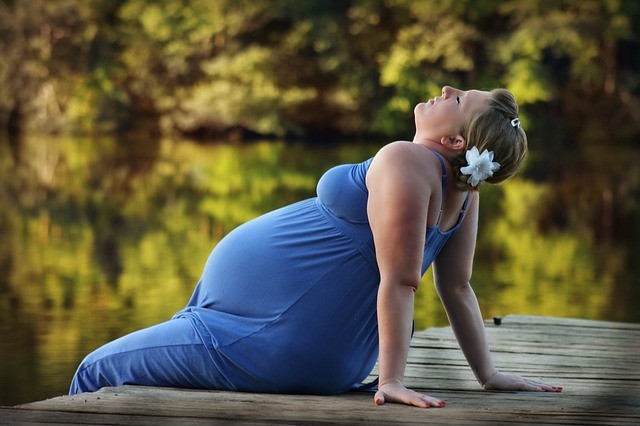During the nine wonderful months of pregnancy, it is normal to experience all manner of strange aches, pains, and twinges. Some are normal, in fact most are completely normal, but it’s important to know about the things that might raise a concern or two, so you can get help before a serious situation arises.
Remember, pregnancy is a time when everything is shifting and moving, and you have all manner of hormones rushing around your system. This means you’re going to experience some side effects! Anything you’re not sure of, or anything which is worrying you, check things out with your doctor, to give you peace of mind. It’s really that simple.
Throughout pregnancy overall, it’s normal to sometimes need some help. Perhaps you have another child, perhaps you have more than one, and perhaps you’re trying to work at the same time, in this case, a maternity nurse or nanny could be a great helping hand for you. By taking a little off your plate, and by giving you the advice and help you need for any concerns, you lower pregnancy anxiety by a huge amount. Nobody needs to be experiencing stress in their lives, whether pregnant or not!
Let’s talk about some of the harmless abdominal pain in pregnancy causes, before moving on to the ones which you should be consulting your doctor or midwife about.
Overview of Pain in Pregnancy
Remember, your body is growing to make room for the new life inside of you, so of course all that stretching is going to hurt a little. Don’t worry, we’re not talking about agony, and if you experience stomach pains which are extremely severe, you should certainly be getting those checked out. Overall however, your uterus is getting larger, your ligaments are starting to stretch out, to accommodate that larger uterus, and you’re carrying more weight overall.
By becoming more au fait on what can cause cramping during pregnancy and general aches and pains, you can decipher what it serious, and what really isn’t. If your pain is accompanied by any other symptoms, e.g. diarrhoea, vomiting, or any bleeding, seek out help.
Pregnancy Pain Causes Not to Worry About
Your Uterus is Becoming Larger
We just touched upon this, but your uterus is growing as your baby does, and that can move other things around. It’s not unusual for your bowel to be displaced as your uterus becoming larger, especially towards the end of the second and into the third trimesters. All of that growing and moving around can give you aches and pains, and it can also mean that you could experience nausea and feel fuller much faster as a result.
In order to overcome this problem, concentrate on your diet, make sure you get plenty of small, more frequent meals, exercise lightly, and get plenty of rest. This is something a maternity nurse can help advise you on too, overlooking a healthy and active pregnancy.
Round Ligament Aches and Pains
Again, this is down to your uterus becoming larger, but it stretches out the two large ligaments (round ligaments) which stretch from the front side of your uterus, and through your pelvis and groin. This could be felt in a number of ways, either as a stretching, pulling, it could be a stabbing or sharp pain, or it could be a dull ache. You’ll notice this as your uterus starts to really grow, and could be sooner if you’re expecting a big kid, usually part way through your second trimester, but the good news is that it should go away on its own.
Gas and Constipation
Yes, these are two of the most common culprits! Pain in the pelvic area is easily felt when you’re full of wind, whether you’re pregnant or not! The problem is that pregnant women are much more likely to develop both of these conditions, and as a result, pain in the abdomen can be a side effect.
Basically, when you’re pregnant, it can be that your digestion slows down, which means you need to drink more water and you need to make sure that your diet is packed with fibre. Any major issues however, speak to your doctor or midwife, and you may be prescribed something to help things along a little.
Braxton Hicks
You will have no doubt heard of Braxton Hicks. These are false contractions, basically your body starting to get ready for the impending birth, but they’re not true contractions, so don’t panic! Some pregnant women can find it hard to differentiate the two, especially if it is their first pregnancy, so don’t hesitate to check things out if you’re not sure. Of course, there is a fine line between Braxton Hicks and possible premature labour, so don’t mess around if you do have worries.
Braxton Hicks can be down to many reasons, and one of them could be dehydration, so make sure you’re drinking plenty of fluid and check to see if the pain gets closer together in terms of time. If it does, this could be a sign of at true contraction.
Complications and Concerns With Pregnancy Pain
There are of course some issues that you need to be more aware of, and if you notice these are getting worse, or if they’re associated with other things, like bleeding, problems with vision, nausea, or sickness, get some help ASAP.
Ectopic Pregnancy
This is one that you need to be super aware of and act fast. Ectopic pregnancy pain is severe and sharp, and this occurs when the egg plants itself where it shouldn’t, e.g. outside of the uterus, and then starts to grow. This usually occurs within the fallopian tube. Now, before you worry, ectopic pregnancies are rare, but they’re also serious. If you have had any problems with your uterus or fallopian tubes in the past, or you have other risk factors, your midwife or doctor will be more aware of this possibility, but overall, if you have severe pain and other side effects, get help as soon as possible. An ectopic pregnancy cannot and will not continue, it will need to be dealt with and fast, to avoid serious complications to your health and wellbeing.
Miscarriage
Miscarriage is the one thing no woman wants to talk about, but unfortunately it is a common reason for pregnancy pain, commonly in the first trimester. Around 15-20% of all pregnancies unfortunately end in a miscarriage, so signs to be on the look out for include pain, but also bleeding, cramping, or cramps which feel like a period pain. If you notice this, head to see your doctor or midwife immediately, to find out what is going on.
Premature Labour
Again, this is one you shouldn’t dilly-dally with, and if you are noticing contractions coming at regular intervals, usually associated with backache, before 37 weeks of pregnancy, you could be experiencing premature labour. If this is suspected, call the hospital immediately and go get checked out. This is something which could be Braxton Hicks, but it could also be something more serious, so don’t wait around. If they check it out and send you home because it’s nothing to worry about, great, but it’s always better to be on the safe side.
Abruption of The Placenta
This sounds like a serious condition, and it is. Again this isn’t meant to scare you, and it is super rare, but it’s worth being aware of it. Obviously, the placenta delivers everything your body needs, and it stays in place until your baby is born. After that time, it detaches itself and you deliver it shortly after your baby. Sometimes, the placenta detaches early, and this usually happens in the third trimester. There will be no disgusting that something is seriously wrong because the pain will be extremely severe, constant, and you could feel that your uterus is extremely hard. In this case, you might also notice bright red blood and clots.
In the case of a placental abruption, you need to get to the hospital ASAP. You will normally have to deliver your baby by emergency caesarean section, but if it isn’t a serious case, you might be induced and be able to deliver vaginally. It really depends on what your doctor advises. Having the services of a maternity nurse around can help you identify these potentially extremely serious conditions much faster.
Pre-Eclampsia
One of the most common of all pregnancy complications, is pre-eclampsia. This is one which your midwife or maternity nurse will always be monitoring for. After 20 weeks, you should be on the look out for signs of this, which do include pain, but also visual problems, nausea, extreme headaches, swelling, etc.
Pre-eclampsia is the reason why you will have regular blood pressure checks, because this is a sign of the condition. You will probably also have regular urine checks, because protein in the urine is also a symptom/sign. When untreated, pre-eclampsia drastically increases the risk of a placental abruption, premature labour, and other severe complications. Another off-shoot of pre-eclampsia is something called HELLP Syndrome, and that is another thing your midwife or doctor will regular check for. If you suspect anything is wrong, get checked out ASAP.
UTI – Urinary Tract/Water Infection
You can get a UTI at any time in your life, but during pregnancy you’re unfortunately at a higher risk. Now, a UTI isn’t always serious, but it can be. If you notice pain in the abdomen associated with problems urinating, burning, and possible blood in your urine, get checked out with your midwife. If left untreated, a UTI can lead to a kidney infection, and that increases your risk of a premature labour. Don’t worry however, if you are found to have a UTI, you can safely be prescribed antibiotics to clear it up. Don’t wait around and live with the symptoms, they’re unpleasant enough, and could lead to something worse.
Non-Pregnancy Related Issues
Of course, just because you have pain in your abdomen, it doesn’t mean it is related to anything to do with your pregnancy or the baby; it could be something totally unrelated! You are not immune to things like appendicitis and gallstones just because you’re pregnant, and these are two of the most common conditions which can cause abdominal pain in the regular run of life. The best advice to give is this – if you’re concerned, get yourself checked out; it pays to be safe, than sorry.
To sum it all up, the biggest red flags to be on the look out for are:
- Any pain before 12 weeks, whether you’re bleeding or not
- Very strong cramps, with bleeding – could be a sign of a miscarriage
- Severe pain
- A strong headache
- Any swelling in your face, legs, or hands
- Any problems with your vision
- Any problems with urination, including blood, burning, or problems actually urinating
- Pain which feels like a contraction, and comes at a rate of four in one hour
Can a Maternity Nurse Help me?
Yes! A maternity nurse is basically your guide throughout pregnancy, delivery, and after your baby is born. Basically carrying out many of the duties which a midwife would carry out, a maternity nurse is there to offer help and advice, as well as carry out regular monitoring on things which you may have problems with already.
One of the biggest plus points of having a maternity nurse is that you will know you’re being well cared for on a personal stand-point, and that lowers your anxiety and worries, during a time which is already quite concerning! In order to enjoy your pregnancy, for the full of wonder nine months that it is, a maternity nurse can give you the peace of mind that you would possibly otherwise be short of. Whether it’s your first pregnancy, or you’ve had issues in previous pregnancies, a maternity nurse is a great idea to look into.




